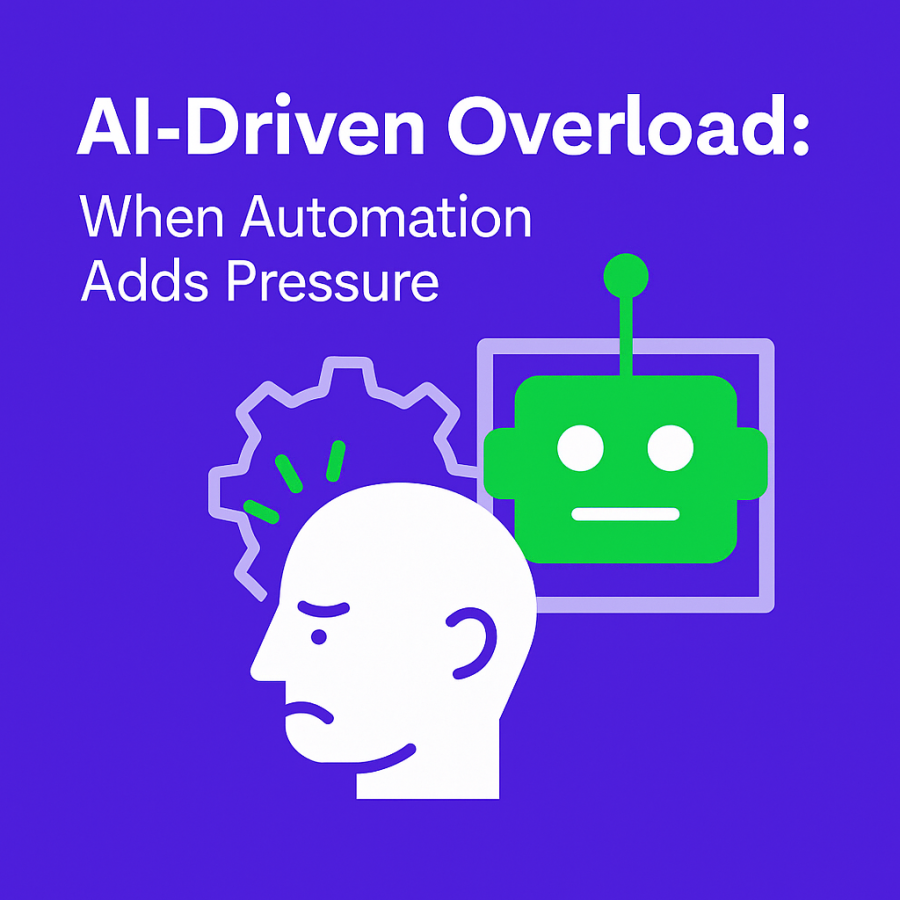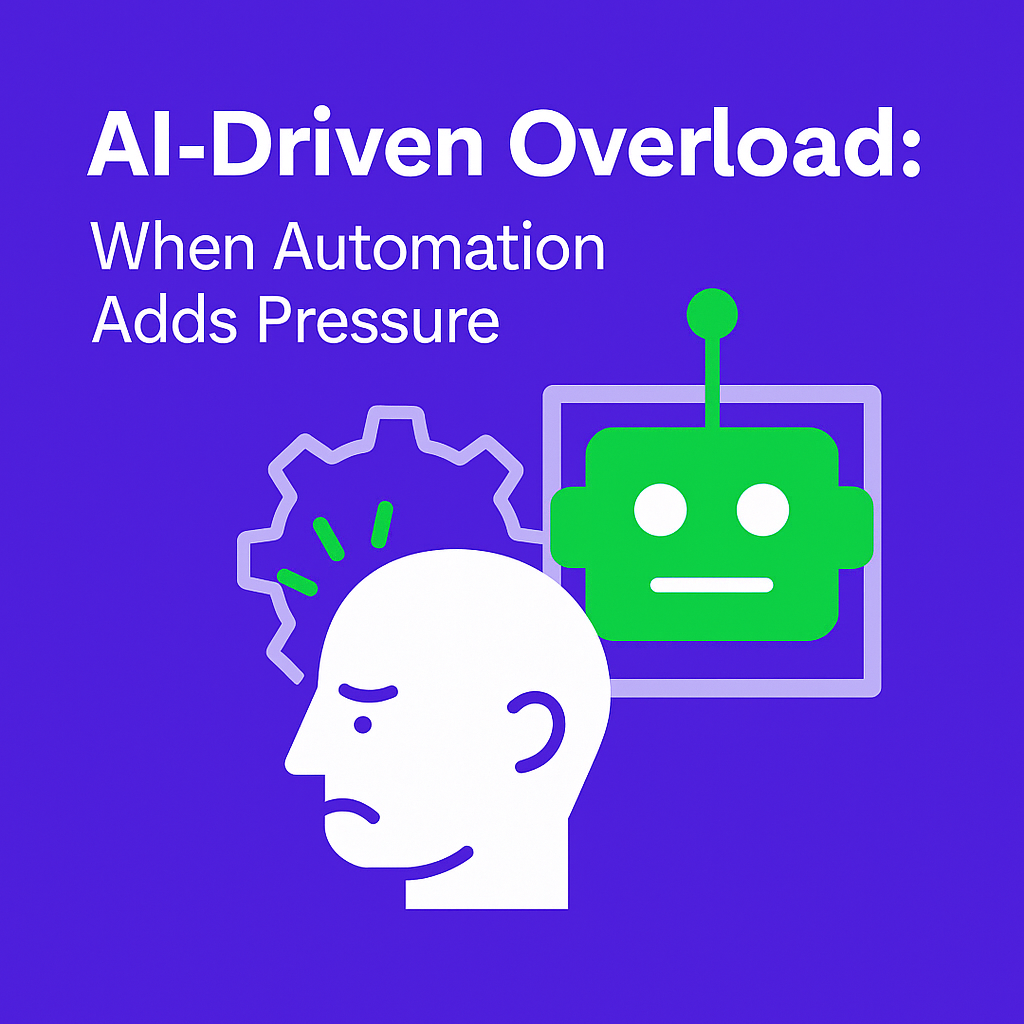Project Managers Battling AI-Augmented Micromanagement in 2025
Introduction
In the modern digital workplace, artificial intelligence (AI) has reshaped how projects are managed, executed, and analyzed. Once heralded as a liberator from mundane tasks, AI is now raising new concerns, particularly around mental health and burnout. A striking paradox has emerged in 2025: as productivity soars due to AI-assisted tools, the psychological well-being of project managers and teams often declines.
This article explores the phenomenon of AI-driven overload, where the abundance of data, constant optimization, and algorithmic oversight leads to increased pressure rather than relief. We examine how project managers are coping with this shift, what tools are driving these changes, and what platforms—like Artavolo—are doing to create more humane workflows.
The Rise of AI in Project Management
AI’s promise in project management has centered on automation, prediction, and real-time insights. Platforms now analyze patterns across tasks, deadlines, team communications, and performance to offer predictions and recommendations. Tools such as Microsoft Project, ClickUp, Monday.com, and the emerging Artavolo platform integrate AI to streamline workflows, assign resources, and even generate content or decisions.
These developments have indeed enhanced operational efficiency. AI bots can now summarize meetings, suggest optimal schedules, and automatically update project timelines. Predictive models warn managers when projects are likely to fall behind, and real-time dashboards provide granular views of team productivity. But with these efficiencies come new forms of surveillance and stress.
AI-Augmented Micromanagement: A New Pressure Point
Project managers increasingly report that instead of relieving their burden, AI often amplifies it. With AI generating real-time performance metrics and red flags, managers feel compelled to constantly monitor, justify, and react. This has given rise to a form of AI-augmented micromanagement—a digital panopticon where every delay or deviation is tracked, flagged, and scrutinized.
Team members, too, feel the weight. Automated nudges remind them to respond to messages, complete overdue tasks, or reallocate effort based on performance forecasts. In theory, these nudges are helpful; in practice, they create a persistent sense of being monitored and judged by an impersonal system.
Case Study: The Impact on Agile Teams
Consider an agile development team using an AI-enhanced platform. Each sprint is tracked not just by human scrum masters but also by machine learning models that predict individual task completion likelihood, flag code delivery inconsistencies, and auto-adjust timelines.
Initially, the team sees productivity gains. However, over several months, developers report increased anxiety, feeling the need to outperform previous metrics continuously. The sprint reviews become not just human reflections but algorithmic audits. This leads to a decrease in creativity, rising attrition rates, and, paradoxically, declining performance.
The Paradox of Productivity vs. Wellness
This is the central paradox of AI-driven overload: productivity metrics improve, but team satisfaction and mental health decline. The more a system optimizes for output, the less room it leaves for the human unpredictability that defines creative, collaborative work.
Burnout—a state of emotional, physical, and mental exhaustion—is increasingly common among project managers in AI-heavy environments. They report decision fatigue from constant system-generated alerts, decreased autonomy as AI makes more decisions, and an erosion of trust within teams, who perceive managerial actions as dictated by algorithms rather than empathy.
Artavolo: A Case for Humane AI Integration
Amid this shift, platforms like Artavolo are emerging as advocates for balance. Built with flexibility and psychological safety in mind, Artavolo integrates AI features not as watchdogs but as assistants.
Artavolo's Smart.Editor, for instance, offers AI-generated summaries, translations, and content enhancements, but it always allows human override. Instead of auto-assigning tasks based on pure efficiency models, Artavolo supports contextual task planning—letting teams collaboratively decide priorities. The platform even includes reflective tools that prompt users to rate emotional workload, track burnout symptoms, or suggest rest periods during long sprints.
Moreover, Artavolo encourages transparency in its AI. Unlike black-box algorithms, its AI models are explainable, allowing project managers to understand why certain alerts or suggestions appear. This promotes trust and empowers teams to engage with AI critically rather than passively.
Designing AI for Mental Wellness
The future of AI in project management must consider human-centered design. Here are key principles guiding more mindful AI tool development:
Transparency: Users must understand how and why AI makes decisions.
Opt-in Personalization: AI recommendations should be adjustable and respect user autonomy.
Emotional Insight: Tools should track not only task completion but emotional state and workload.
Quiet Modes: Just as we have "Do Not Disturb" for devices, AI platforms need "mental quiet modes" during deep work or recovery periods.
Feedback Loops: Human feedback should inform and retrain AI systems regularly.
The New Skillset for Project Managers
Modern project managers must now add AI literacy to their toolbox—not just technical understanding, but the ability to mediate between automated recommendations and human judgment. They must champion wellness in environments that prioritize speed and scale.
Training programs and certifications are beginning to reflect this. Organizations like PMI and IPMA are expanding their curricula to include digital empathy, ethical AI usage, and change management in AI-integrated teams.
Cultural Change Over Technological Change
Ultimately, addressing AI-driven overload is not solely a technology issue—it’s a cultural one. Leadership must prioritize sustainable productivity over short-term output. Organizations must resist the urge to equate activity with value and instead build systems that respect rest, reflection, and human pace.
Platforms like Artavolo point the way forward, showing how it is possible to gain the benefits of AI without compromising mental health. But for this model to scale, businesses must embrace a shift from efficiency obsession to human-centered innovation.
Conclusion
AI is not inherently harmful in project management—on the contrary, it has transformative potential. But like any tool, its impact depends on how it’s used. As we enter an era of AI-pervasive work, the burden falls on designers, project leaders, and organizations to ensure that automation does not come at the cost of well-being.
The AI-driven workplace must evolve from a factory of data and decisions into a garden where human creativity, autonomy, and mental health can flourish. Artavolo and similar platforms are leading this charge, offering a vision where AI enhances rather than erodes the human experience of work.
In 2025 and beyond, the most successful project managers may not be those who deploy AI the fastest—but those who deploy it the most wisely.

